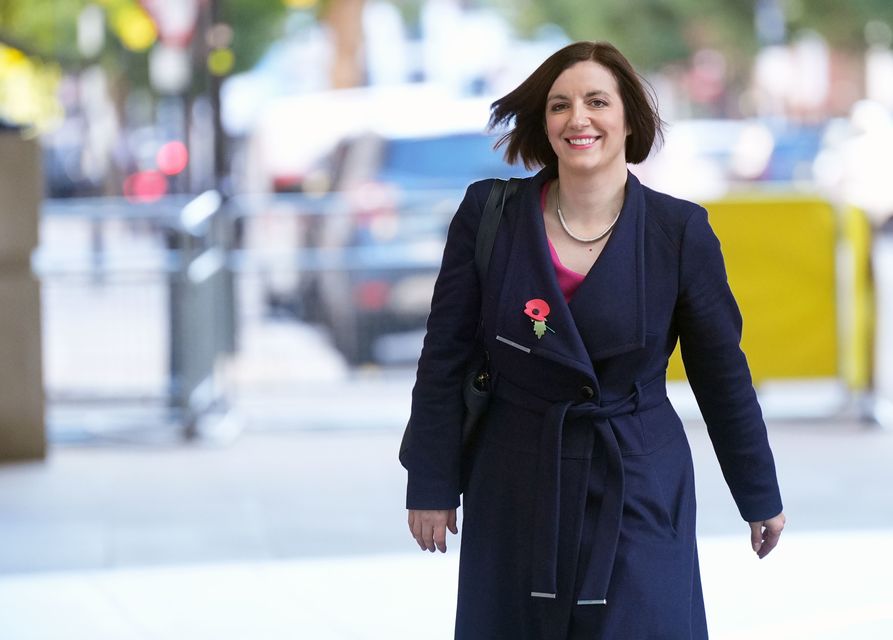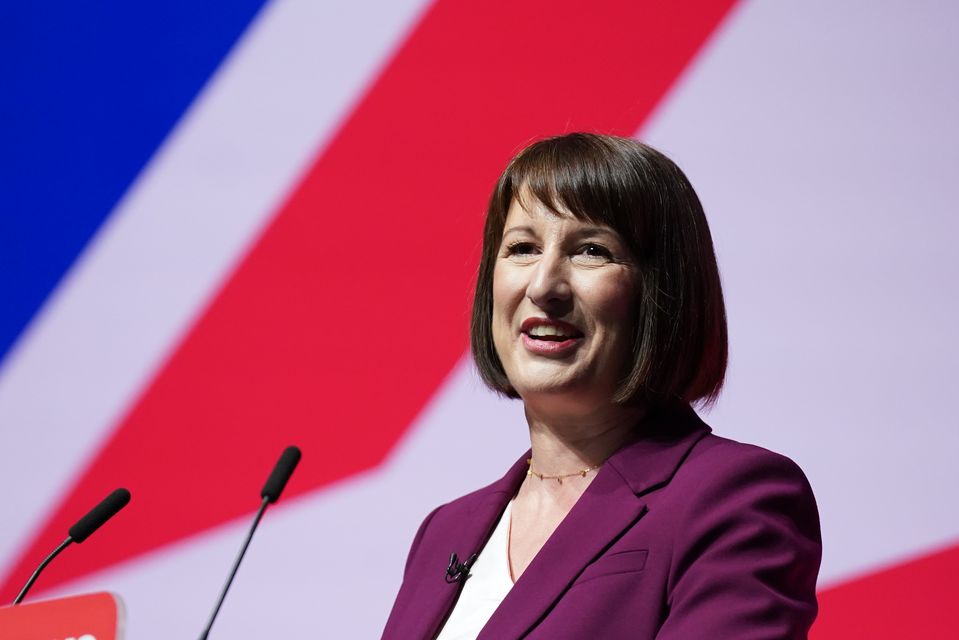Working people will not see higher taxes on their payslip, a minister said as she acknowledged “frustrations” over the Government’s refusal to spell out who will be hit by greater levies ahead of the Budget.
Education Secretary Bridget Phillipson repeated warnings that Wednesday’s financial statement will include “tough choices”, but she insisted it is a choice between investment or decline for the UK.
Facing broadcasters on Sunday morning, the Cabinet minister was repeatedly pressed to define the Labour Government’s use of the term “working people” – who it has promised to protect from tax hikes in the Budget.
“You are inviting me to speculate about the nature of the question that you’re asking,” she told the BBC’s Sunday With Laura Kuenssberg show.
“What I’m saying is that when people look at their payslips, they will not see higher taxes.”
Ms Phillipson declined to say whether a small business owner with an average net profit of around £13,000 is considered a “working person” by the Government.
Education Secretary Bridget Phillipson spoke for the Government on the Sunday morning media rounds (Yui Mok/PA)
Speculation has mounted that people who make money from assets such as property could face greater levies in the Budget after Sir Keir Starmer said they do not fall within his definition of the term.
Labour had pledged in its manifesto not to hike taxes on what it described as “working people”, explicitly ruling out increases to VAT, national insurance, and income tax.
On Sunday, a Government source insisted it is still committed to keeping this promise over the whole of this Parliament after Ms Phillipson refused to “speculate” on whether the pledge would remain in place for the next five years during the morning media round.
“We can go through a range of different hypotheticals about who may or may not be captured by tax measures that may or may not happen in the Budget,” the Education Secretary said.
“When Rachel (Reeves) is sat here next weekend you can ask her about the measures that she’s announced.
“I know it’s frustrating ahead of the Budget that I can talk about some areas, but not all of it. I appreciate your frustration.
“I would love to come and say ‘here’s all the measures line by line’, that’s not my job however – that’s for the Chancellor.”
Asked whether she understands that viewers will be frustrated as well, Ms Phillipson said: “I can get that, and they haven’t got long to wait.”
Despite ministers remaining tight-lipped, there are several measures expected in Wednesday’s statement, including a hike on employer national insurance by up to two percentage points.
Chancellor Rachel Reeves will outline her Budget on Wednesday (PA)
Chancellor Ms Reeves is also expected to cut the earnings threshold at which employers pay contributions – measures that would raise a combined total of around £20 billion as she seeks to revive public services and put the economy on a firmer footing.
Some £1.4 billion has been announced ahead of time to rebuild crumbling schools, as well as a tripling of investment in free breakfast clubs, £1.8 billion for the expansion of Government-funded childcare, and £44 million to support kinship and foster carers.
Speaking on Sunday, the Education Secretary said she would “love to go faster” on bolstering protections for vulnerable children, but that it will “take time”.
“We have seen the steady erosion of family support services,” she said.
“But it will take us time, and I would love to go faster on some of this – I absolutely would. But there is lots that we can do right now.”
Ms Reeves is also expected to target public sector net financial liabilities (PSNFL) as her new measure of debt rather than the current yardstick of underlying public sector net debt.
A shift to PSNFL would give her greater headroom to meet her debt reduction target, because it includes a wider mix of state assets and liabilities – notably including expected student loan repayments to offset some of the liability.
Had PSNFL been used as the metric in the March 2024 budget, the “headroom” – the margin by which the fiscal rule is met – would have increased by £53 billion, according to the Institute for Fiscal Studies.
Capital gains tax, inheritance tax and fuel duty are among some of other levers Ms Reeves could potentially pull to raise revenue as she seeks to put the economy on a firmer footing.
In an interview with the Observer, she suggested she wants Wednesday to match the greatest moments in Labour’s economic history, while in an op-ed for the Sun On Sunday she said the statement would a “Budget for the strivers”.
She added: “In 1945, we rebuilt after the war; in 1964, we rebuilt with the ‘white heat of technology’; and in 1997, we rebuilt our public services. We need to do all of that now.”
Shadow science secretary Andrew Griffith said Labour “essentially lies to the British people” in terms of its plans, and he compared the party’s behaviour to the “worst form of dodgy car hire firm”.
He told Sunday With Laura Kuenssberg: “Already after 110 days, I think people are seeing that this Government came in on a false prospectus that things would be easy.
“They essentially lie to the British people in terms of their plans, not to increase national insurance… not to change the fiscal rules.”
Paul Johnson, the director of the Institute for Fiscal Studies, has warned some public services could continue to feel squeezed despite “one of the biggest tax-raising budgets ever”.
He told Sky: “Justice, local government, social care, police, prisons, they’re all really struggling at the moment.
“So again we’re in this really tough position where we could have the biggest tax-raising budget, or one of the biggest tax-raising budgets, ever and yet a lot of public services still feeling squeezed.”
Former Bank of England governor Mervyn King warned higher borrowing would also hit longer-term interest rates, which would “bear the brunt”.
He added: “Certainly if you borrow more, it doesn’t matter how you dress it up in terms of a different fiscal rule, people know that higher borrowing means higher borrowing, and financial markets and people who lend to the Government will demand a slightly higher interest rate to compensate for the higher amount of debt that they’re being asked to finance.”

